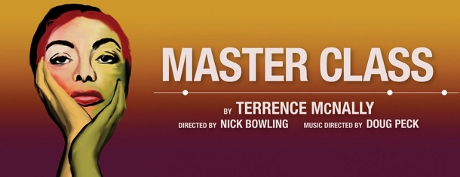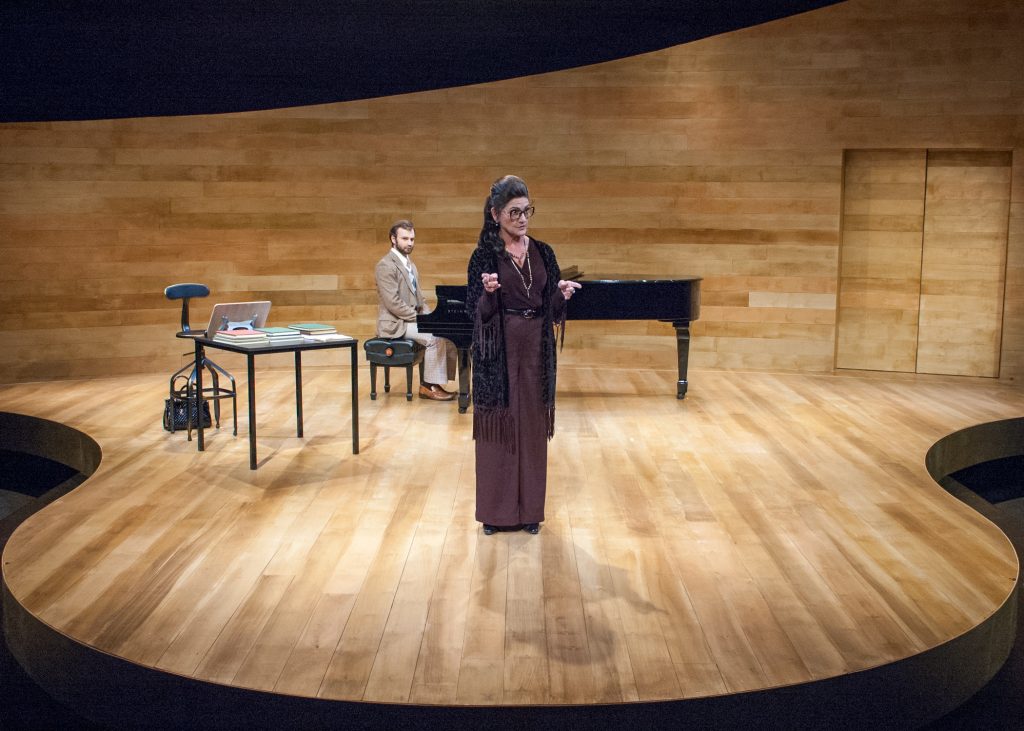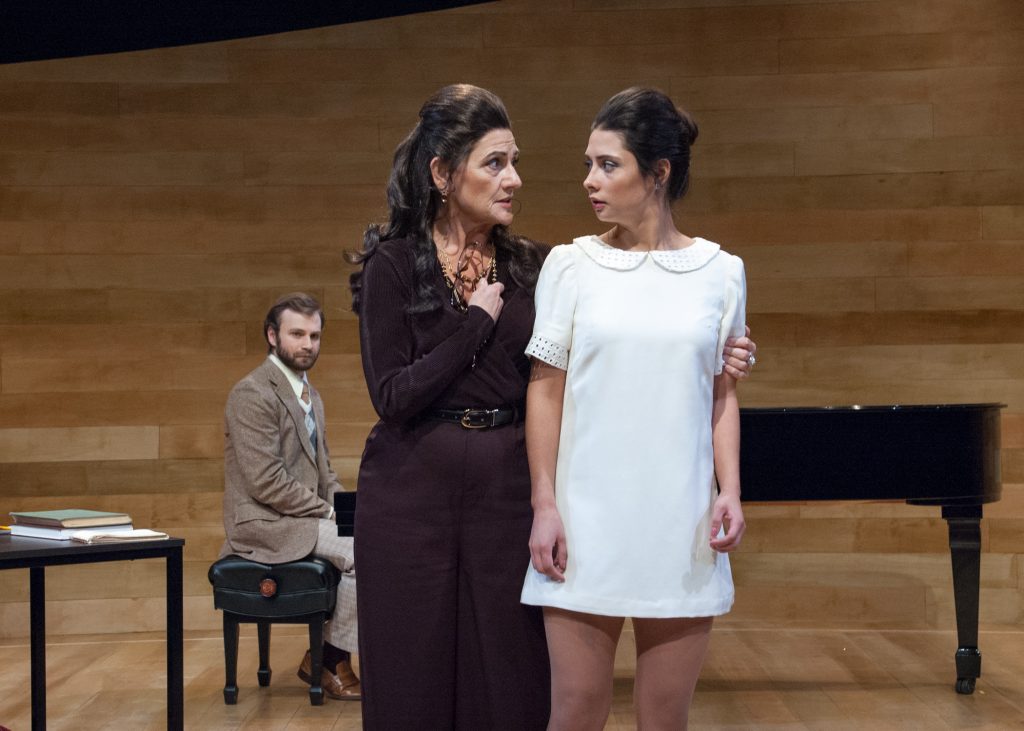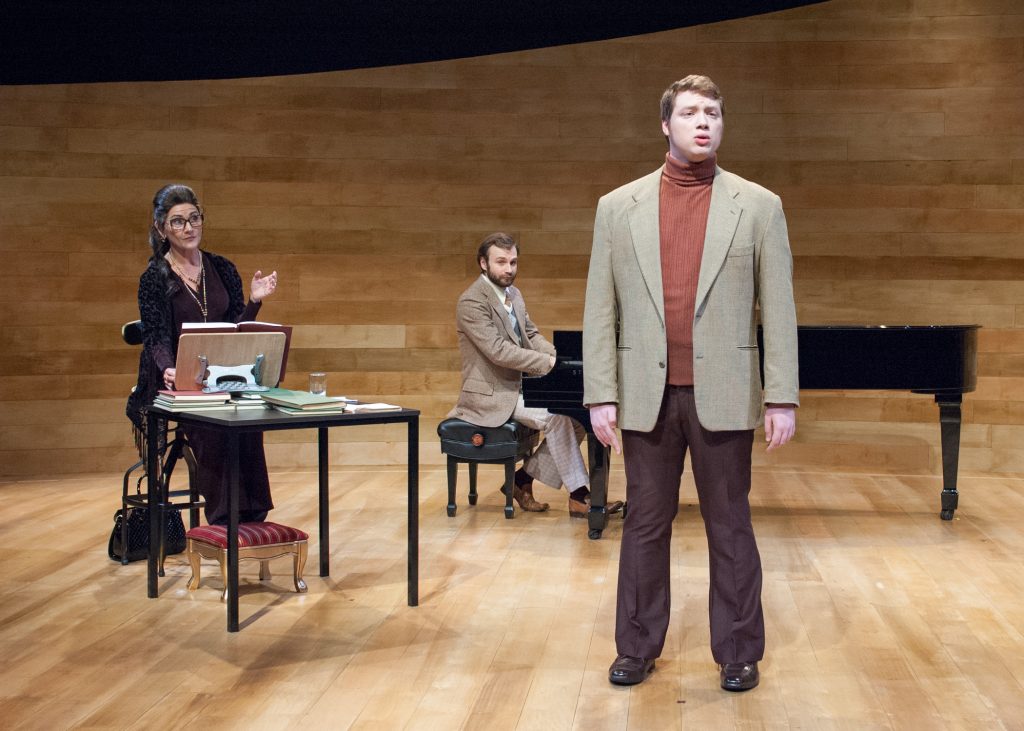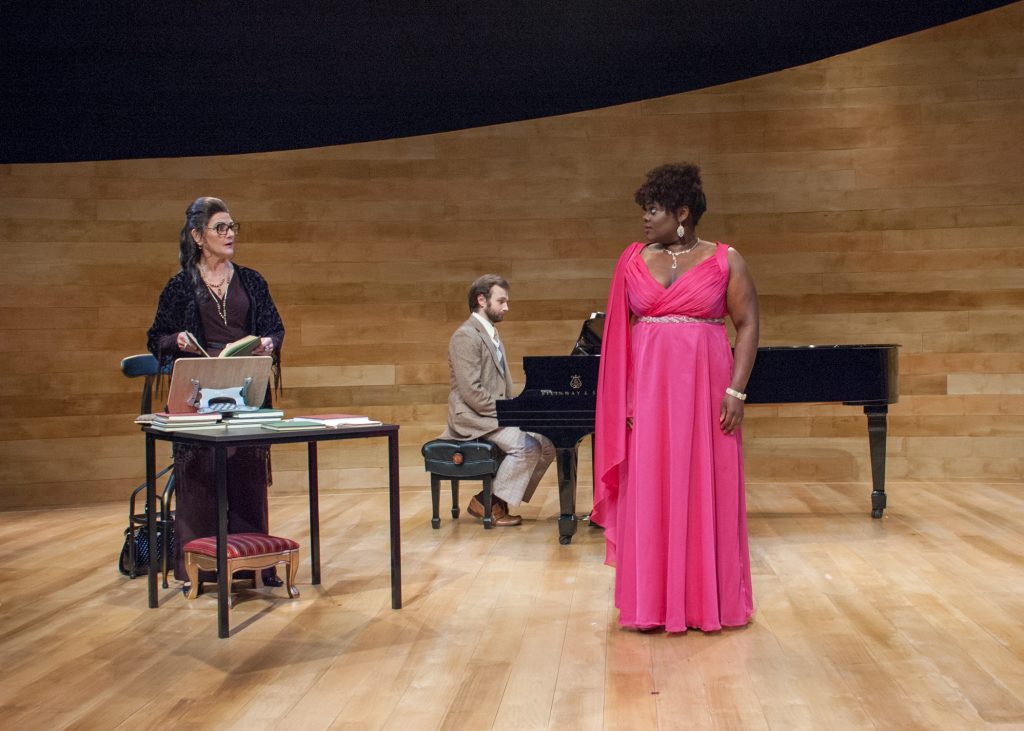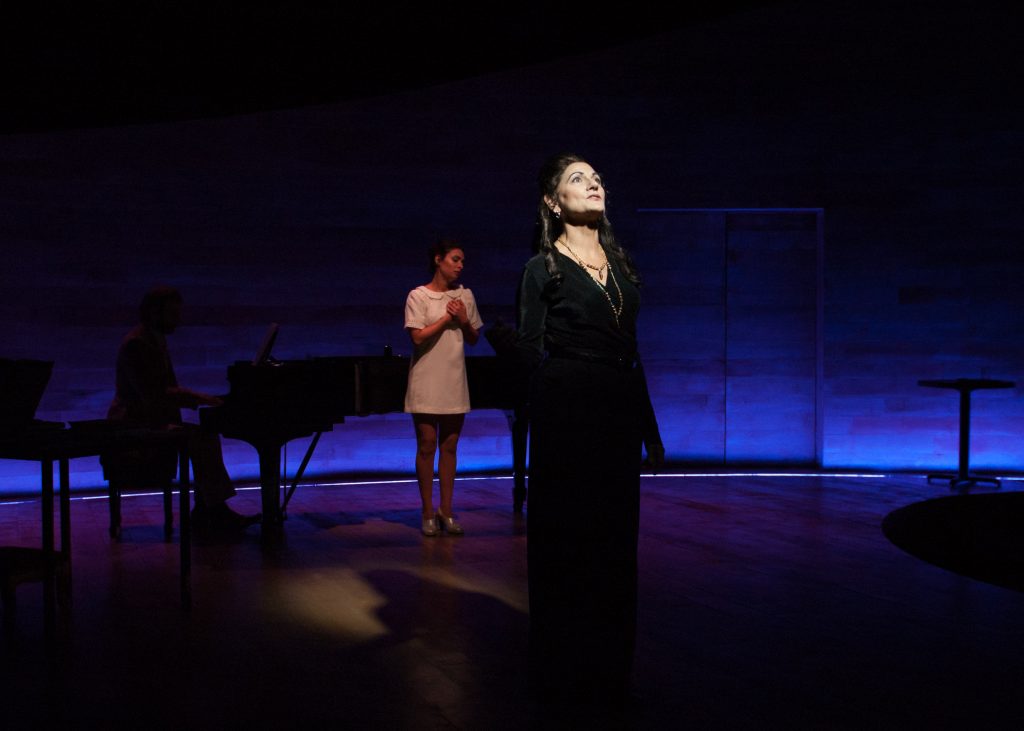LA DIVINA EXPLAINS IT ALL FOR YOU
After she prematurely destroyed her once “smoky,” soaring voice, the “prima donna assoluta” — Greek soprano Maria Callas — decided that if you can’t sing, teach. Semi-tragically separated from her billionaire lover Aristotle Onassis, near the end of her too-short life (she died at 54 in 1977), the #1 diva of the 20th century deigned to give master classes at New York’s famed Julliard School of Music. The torch, which she wielded like a Fury, had to be passed.
It was necessarily a much smaller stage, this recital hall. But even the largest amphitheater couldn’t contain Callas (neither was she retained by many opera companies, including La Scala, the Met, or Chicago’s Lyric Opera where she made her U.S. premiere in 1954).
Of course, humble to a fault, La Callas was not intent on grandstanding or pontificating for her artistic acolytes. She was there to inspire and instruct the next generation, effacing herself before the talent of tomorrow.
And, if you believe that, buy some more bitcoins. As Terrence McNally’s 1995 Master Class reveals, now in a suitably provocative revival by TimeLine Theatre at Stage 773, the larger-than-life legend was equally intent on showcasing her sheer stupendousness before three rightly cowed wannabe opera stars.
And, of course, that’s what an audiences craves in this splendid simulation. Happily, like Carmen Roman or Zoe Caldwell before her, Chicago favorite Janet Ulrich Brooks rises to an illustrious occasion.
Presiding over Arnel Sancianco’s sweeping wooden concert chamber, La Brooks emanates the imperial entitlement and withering disdain with which Callas could fry mere mortals, denying that she had any rivals even as she sneers at the lesser headliners of 1971 (Joan Sutherland, Beverly Sills, Renatas Scotto and Tebaldi).
Contradictory, volatile, capricious and caustic, Brooks’ bella donna manages to suck up all the air in the room. She condescendingly treats an awestruck audience (who she dismisses as “performing seals”) to snippets from her poverty-stricken childhood in Athens where she literally had to sing for her supper. For this driven dame, hunger –artistic or digestive — is no abstraction. Neither is sacrificing yourself (or others) to placate your passion for Puccini.
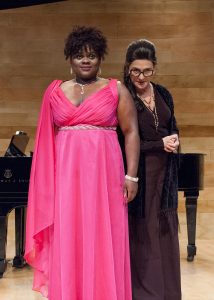 Steeped in glamour, mellowed with sardonic humor, Callas’s credo, shared or forced with these budding belters, is to let the music fill you to bursting. Every performance is a struggle against the enemy, the audience, which you win for the composer as much as for your career. “Feel and be,” don’t stand and sing. “Art is domination!” Diction and technique are essential. There are no shortcuts to greatness.
Steeped in glamour, mellowed with sardonic humor, Callas’s credo, shared or forced with these budding belters, is to let the music fill you to bursting. Every performance is a struggle against the enemy, the audience, which you win for the composer as much as for your career. “Feel and be,” don’t stand and sing. “Art is domination!” Diction and technique are essential. There are no shortcuts to greatness.
Even if she can’t lift a high C to glory, Callas’s acting (and recordings played as a musical backdrop) remind us that we are in the presence of self-made greatness. “We’re here to work,” she warns, and it’s “serious business.” Gleefully calling her students “victims,” our commanding superstar cautions that her bark is worse than her bite (ha!). She briefly flirts with her self-effacing Jewish accompanist Manny (a very respectful Stephen Boyer) and fusses over her perch with an indifferent young stagehand (Raymond Hutchison).
Cunningly coached by music director Doug Peck, the first singer, attempting the demanding “Ah! non credea mirarti” from Bellini’s La Sonnambula, is soprano Sophie (lovely Molly Hernandez). This fragile hopeful gets cruelly critiqued for her skimpy wardrobe and lack of the “look” that makes all the difference. It doesn’t help when, trying to deepen her commitment to the notes, Callas asks Sophie if she’s ever known loss; Sophie mentions a misplaced umbrella. (As he shows in the execrable It’s Only a Play, McNally will always stoop to conquer.)
Constantly interrupting to provide context and subtext, Maria upbraids the downcast apprentice. “Astonish me,” orders the implacable, unimpressed instructor. But she also encourages, telling the singer that her gift, should she nurture it, will chart a straight line to former Callases like Adelina Patti and Giuditta Pasta.
Sharon (Keirsten Hodgens), the second soprano, is intent on singing “Vieni! t’affretta!,” Lady Macbeth’s opening cavatina from Verdi’s early opera. But she gets scared off the stage — only to return in the second act for a memorable reckoning with her unhelpful teacher — and, remarkably, a silenced Callas reluctantly respects a spunk not unlike her own righteous rampages.
In between we hear a very confident tenor named Tony (Eric Anthony Lopez), who’s propelled by a quest for fame that Callas finds familiarly appealing. Equally enthralling is his ardent “Recondita armonia,” Mario Cavaradossi’s artistic credo from Tosca (Callas’s most characteristic opera). Maria knows that this smiling singer is a natural and can only teach himself.
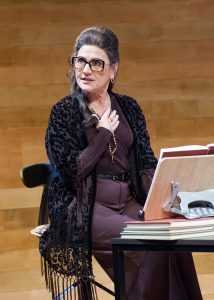 In the midst of the arias, sometimes accompanied by her matchless self, our Callas indulges in imaginary stream-of-consciousness breakdowns, one per act. Over the top and pushing our patience, the mad scenes — painful memories of an “ugly duckling” downbringing; hissy fits verging on vendettas against envious colleagues, petulant producers and hostile critics; and the abortion Onassis forced on this frustrated mother — are La Divina’s soap-operatic triumphs over imagined and actual demons.
In the midst of the arias, sometimes accompanied by her matchless self, our Callas indulges in imaginary stream-of-consciousness breakdowns, one per act. Over the top and pushing our patience, the mad scenes — painful memories of an “ugly duckling” downbringing; hissy fits verging on vendettas against envious colleagues, petulant producers and hostile critics; and the abortion Onassis forced on this frustrated mother — are La Divina’s soap-operatic triumphs over imagined and actual demons.
135 minutes after its sweeping opening, director Nick Bowling’s masterful rendering proves itself an artful cross between travesty and tour-de-force. Unwilling to play along with a supposedly dignified “master class,” a few boorish bullies in the opening night crowd clearly sided with Brooks’s meaner moments. (Silence, as usual, remains golden.) The real Callas would have slaughtered them with Medusa-like efficiency but, understandably, Brooks stuck to the script.
She did it with intensity and immediacy: As much a queen as she ever was in TimeLine’s The Audience, Brooks captures the mercurial moodiness and perplexing insecurities of a one-woman constellation. So does McNally: As a testament to how life and love surrender to the power of music, Master Class, despite the sexist title, is just that. Viva La Callas!
photos by Lara Goetsch
Master Class
TimeLine Theatre Company
Stage 773, 1225 W. Belmont
ends on December 9, 2018
for tickets, call 773.327.5252 or visit TimeLine
for more shows, visit Theatre in Chicago
